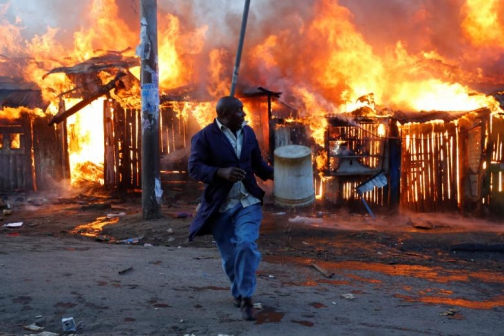×
The Standard e-Paper
Stay Informed, Even Offline

One person was Friday evening shot dead in Kawangware slums, Nairobi as police moved in to quell fighting between two groups. Property of unknown value was destroyed as the gangs looted and set fire to buildings.
KTN News journalists were also attacked by goons and their vehicle vandalised.